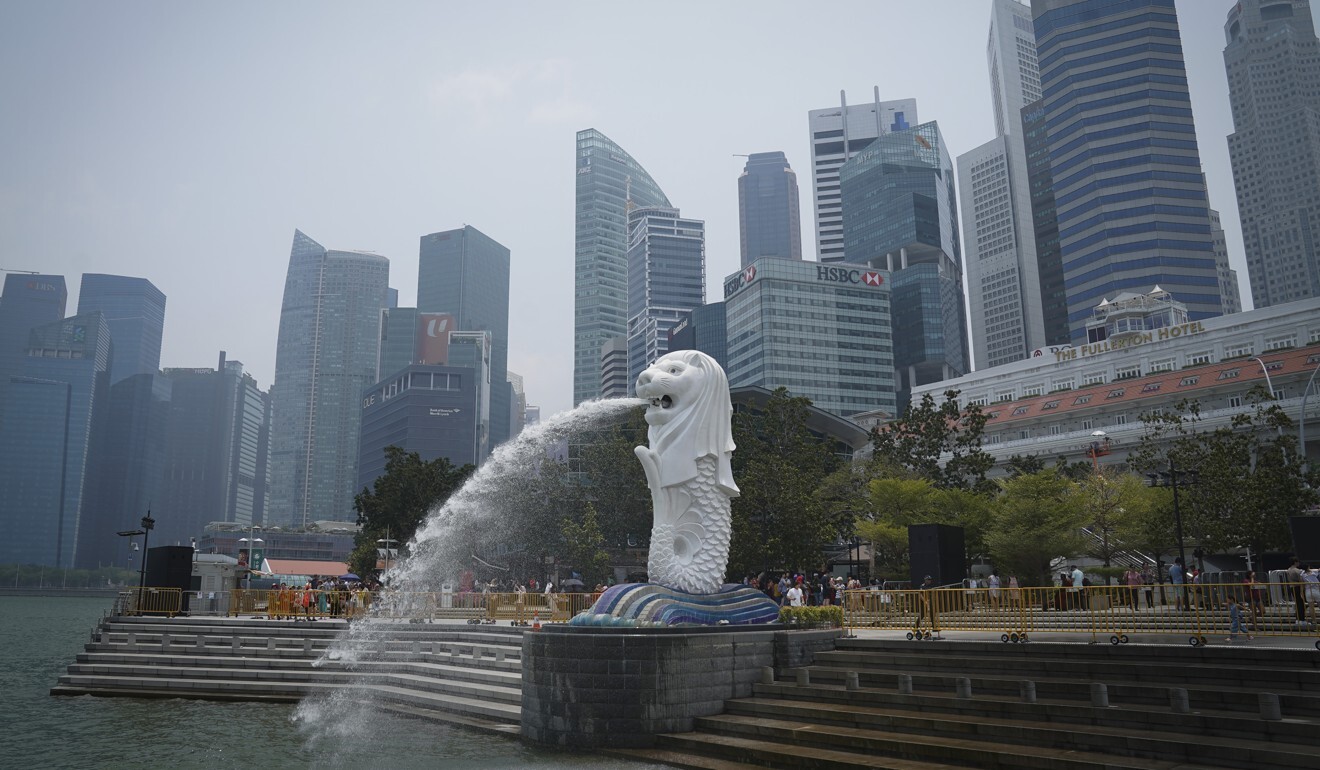
Singapore PM Lee Hsien Loong pushes for foreign talent, says LGBT people welcome
- Lee told the Singapore Tech Forum that talent is crucial to become a regional powerhouse, and that gay and lesbian people are ‘valued members of society’
- The prime minister said that while US-China tensions exist, ‘we try our best to keep our links to both sides and to do business with both sides’

Singapore Prime Minister Lee Hsien Loong believes the city state must welcome foreign talent to realise its goal of becoming a technology centre, while acknowledging the tensions this could foster with the local population.
The tiny country of 5.7 million must place technology, which proved instrumental in quelling Covid-19 this year, at the heart of its future development, Lee said in a keynote speech at the Singapore Tech Forum, an annual gathering for professionals from Silicon Valley to Asia.
An island nation with few natural resources but an open business climate, Singapore is trying to portray itself as a regional technology powerhouse backed by a supportive government. Under Lee, Singapore has sought to leverage these advantages to welcome foreign investment and global talent.
“We are trying to build a society which is different, where opportunities abound, where we make full use of tech and yet human spirits will flourish,” Lee said. “That requires talents of Singaporeans, but also, we welcome talents from around the world to come and join us and help us build this society.”
On Tuesday, Lee again touted the “Tech.Pass programme” that aims to draw top talent to Singapore. The programme will allow 500 highly qualified individuals – “the movers and shakers of the tech world” – to secure a new type of visa to start and operate more than one company and become an investor, consultant or mentor for local start-ups.

US tech giants such as Google, Facebook, Twitter, Microsoft and Salesforce.com already regard Singapore as a springboard to the rest of Southeast Asia, one of the world’s fastest-growing internet arenas. Chinese tech behemoths such as Tencent Holdings and Bytedance are also building up their presence in Singapore after setbacks in the US and India.
While tensions between the US and China exist, “we try our best to keep our links to both sides and to do business with both sides, with Alibaba and Tencent on one side, and FAANGs on the other side”, Lee said.
“For now, it is possible, but whether going ahead it is possible, that depends on how well the US-China relationships go.”
Lee also said gay and lesbian people are “valued members of society” and welcome in Singapore, in a statement that is at odds with his government’s resistance to popular efforts to decriminalise homosexuality.
“These things shift, but we have to give them time,” Lee said during a question-and-answer session at the forum. “I think it is unwise to force it, because there will be a push back and you’ll end up with polarisation and be in a worse place than we are.”
Senior members of Singapore’s business, political and legal elite backed the most recent attempts to overturn the law in 2018. Law and Home Affairs Minister K Shanmugam ruled out reforms at the time, acknowledging that while a growing minority want the law repealed, “public opinion is often relevant” when it comes to policymaking.
India’s High Court decriminalised gay sex in 2018. Thailand earlier this year advanced a bill that would expand legal rights and recognition of same-sex couples; it’s pending final approval in parliament.
The prime minister has been one of the most vocal global leaders calling for the world’s biggest economies to avoid a destructive clash that could force smaller countries like Singapore to choose sides on everything from trade and technology to Covid-19 vaccines and territorial disputes in the South China Sea.
With its economy dependent on trade, Singapore supports a strong American presence in Asia by allowing the US to use its military facilities, while also counting China as its top trading partner.
“We all want to work together with the US, we all want to work together with other vibrant economies, we would like to cooperate within the region,” Lee said at the New Economy Forum this week. “I think not very many countries would like to join basically a coalition against those who have been excluded, chief of whom will be China.”
Lee’s administration is betting the technology industry can help invigorate the economy, which contracted 7 per cent in the third quarter from a year earlier as unemployment climbed to its highest level since 2004.
The government has pledged about S$100 billion (US$74.4 billion) in stimulus across five aid packages.
Singapore has combined business-friendly policies with heavy investment in the tech sector. It has kept research and development spending at 1 per cent of gross domestic product and allocated a S$19 billion (US$14 billion) budget for research, innovation and enterprise activities for a five-year period through 2020, up 18 per cent from the previous five-year period.